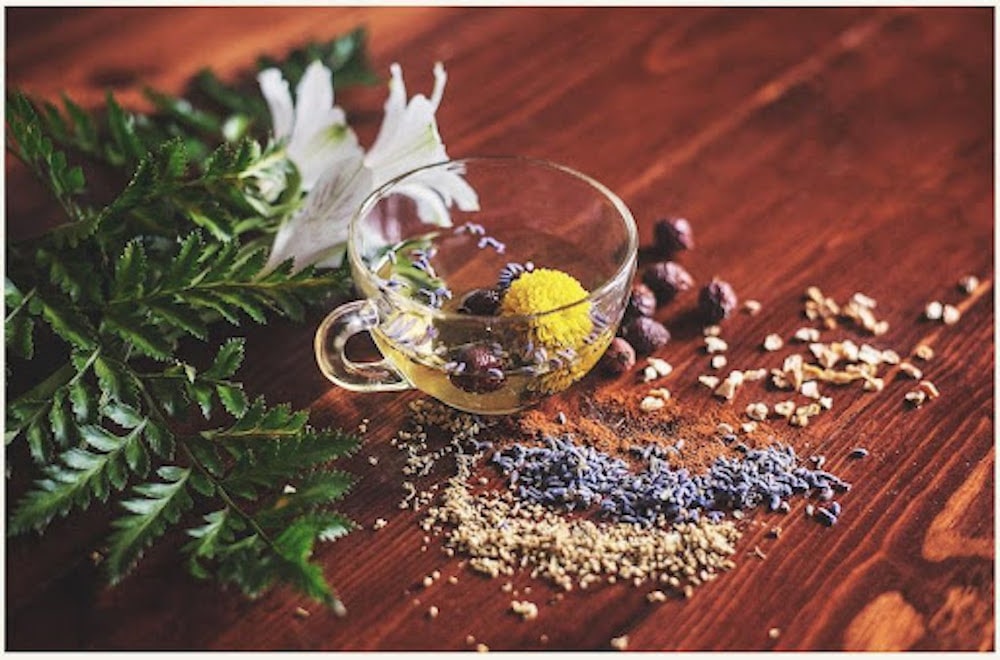Table of Contents
If you’re looking to improve your health and wellness game in the new year, you may be considering adding herbal supplements into your routine. This can be a great idea for your overall health, and improving the way you feel on a daily basis. Herbal supplements have been around for centuries and are likely the oldest type of medicine that exists in documented history.
Early civilizations around the world would learn the properties of the natural plants and herbs around them, and would use these to treat any number of ailments. While western medicine has proven effective in certain capacities, it’s often thought that the best approach to overall health is some sort of middle ground between the ‘eastern’ and ‘western’ practices. In other words, it’s wise to recognize the benefits of both and use each where you can.
As such, herbal supplements are one of many ways for us to take our daily overall health and immune system to the next level. The following are some of the most popular herbal remedies there are, and a brief description of their documented attributes.
1. Elderberry
First up on the list is elderberry. Elderberries have been used as an herbal remedy and supplement since ancient days. This is because it offers the consumer a wide variety of properties.
For starters, elderberries are packed full of nutrients, vitamins, and minerals that all help build our immune system and fight off illnesses. Elderberries have also been used to help relieve headaches and toothaches, colds, viral infections, constipation, and in some cases nerve pain.
That being said, today elderberry is typically used to address symptoms of the common cold and flu, or as an immune system supplement. There are many ways to add elderberries into your diet, although it’s important that they’re cooked when consumed.
With that in mind, elderberry tea has been popular throughout the ages as it’s warm, soothing, and easy to drink when you’re down with the cold or flu. Today, however, you can also get elderberry gummies, or make an elderberry syrup for your ice cream, or even add elderberries to your cobbler or pie. As long as they’re cooked, the options are endless.
2. Echinacea
Echinacea is a plant that flowers and also goes by the name coneflower. It’s a native plant to North America and as such has long been used by Native Americans to treat a wide number of ailments.
Echinacea has been used to treat wounds, burns, a sore throat, toothaches, and even stomachaches. Almost the entire plant can be used in a medicinal capacity, but it’s most commonly thought that the roots are the most potent and effective in this function.
As such, the two most popular ways to consume echinacea is through tea, or in a supplement.
3. Ginseng
Ginseng has a number of attributes associated with it and is most commonly turned into a powder or tea for consumption. In traditional Chinese medicine, ginseng is often used to boost the immune system, brain function, and energy levels, as well as to fight inflammation.
With so many different uses, it’s no surprise that ginseng is still a popular herbal remedy in today’s day and age. That being said, while there are several test-tube and animal studies suggesting extremely positive impacts from the regular consumption of ginseng, human trials are still needed in order to be conclusive.
That said, there are a plethora of ginseng teas available, or you can find ginseng at a local health-food store and make your own.
4. Turmeric
Turmeric is actually a member of the ginger family. This should already hint at some of its potential properties. Turmeric has been used in herbal remedies and cooking recipes for thousands of years already. However, it wasn’t until relatively recently that it found additional attention due to its anti-inflammatory attributes.
Curcumin is the main active ingredient in turmeric and may be responsible for addressing a number of ailments including chronic inflammation, pain, and anxiety.
Curcumin supplements and turmeric supplements both exist, and have been reported to help with arthritis pain in a serious capacity.
5. Ginger
Last, but certainly not least, is ginger itself. You can eat fresh ginger or dried ginger, though the best way to benefit from the medicinal properties is through a ginger tea or supplement. Ginger is most well known for combatting an upset stomach and nausea, though there is some evidence it may have additional attributes as well.
Like with many other herbal remedies, more research is likely needed. That said, you can find ginger supplements both online, and in local stores.
A few Final Thoughts
It’s never too late to add to your health and wellness routine. If you’re looking to amp up your focus on health in the coming year, consider adding a variety of herbal supplements into your normal diet. From elderberry gummies to curcumin supplements, there’s bound to be an herbal remedy that’s right for you.


